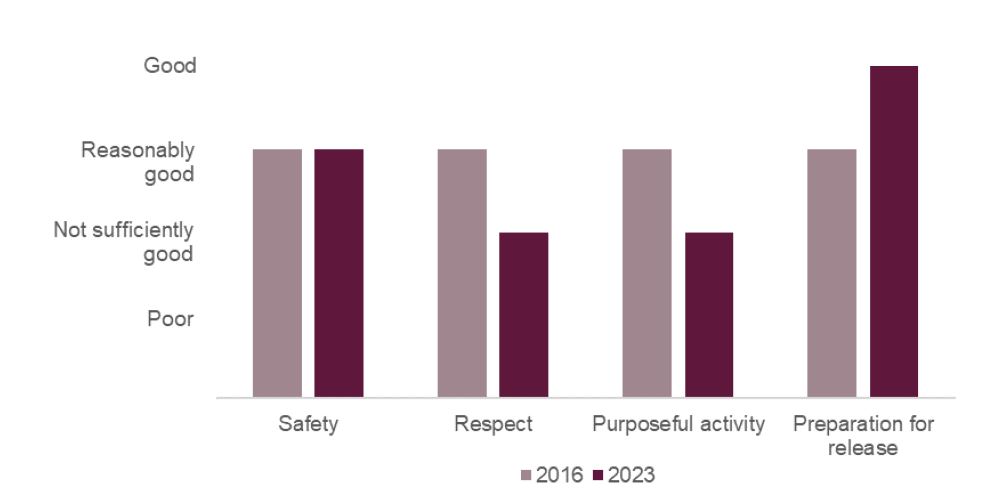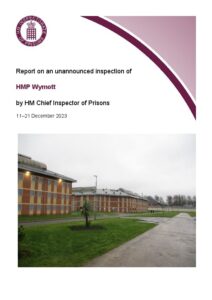HMP Wymott
Report on an unannounced inspection of HMP Wymott by HM Chief Inspector of Prisons (11–21 December 2023)
Wymott healthy prison scores (Back to top)

What we found (Back to top)
Leaders at Wymott failed to tackle the very high staff sickness rates, which meant too few officers were available for operational duties on the wing. This led to an incredibly restricted part-time regime for unemployed prisoners on the main site, some of whom spent 21 hours a day locked up, and the weekend regime was poor for all. Activities across the prison and prisoners’ key health care appointments were often curtailed or cancelled. Specialised officers, such as those with additional psychological training or prison offender managers, were frequently redeployed to do operational tasks.
Staff shortages meant the wait for psychological intervention was extensive, with therapy being 39 weeks and over a year for counselling. This may have contributed to the findings in the inspectorate’s survey in which 20% of prisoners with mental health difficulties said they has developed a problem with drugs since arriving at Wymott. Whilst there had been over 10,000 intelligence reports submitted relating to drugs, a lack of operational officers meant staff completed less than a third of searches, many delayed, and only a third of suspicion drugs tests.
The influx of drugs at Wymott remained a serious problem. It was a cause of debt that resulted in prisoners self-isolating and self-harming because of their fears of violence. There were limited resources available to keep drugs out of the prison with no scanners, systematic checks on staff or adequate technology to reduce the frequent arrival of contraband-laden drones over the large perimeter fence.
These files may not be suitable for users of assistive technology.
Request an accessible format
If you use assistive technology (such as a screen reader) and need a version of any of these documents in a more accessible format, please email media@hmiprisons.gov.uk. Please tell us what format you need. It will help us if you say what assistive technology you use.

